Question And Answer
Publications
Articles, publications, books, tools and multimedia features from the U.S. Institute of Peace provide the latest news, analysis, research findings, practitioner guides and reports, all related to the conflict zones and issues that are at the center of the Institute’s work to prevent and reduce violent conflict.
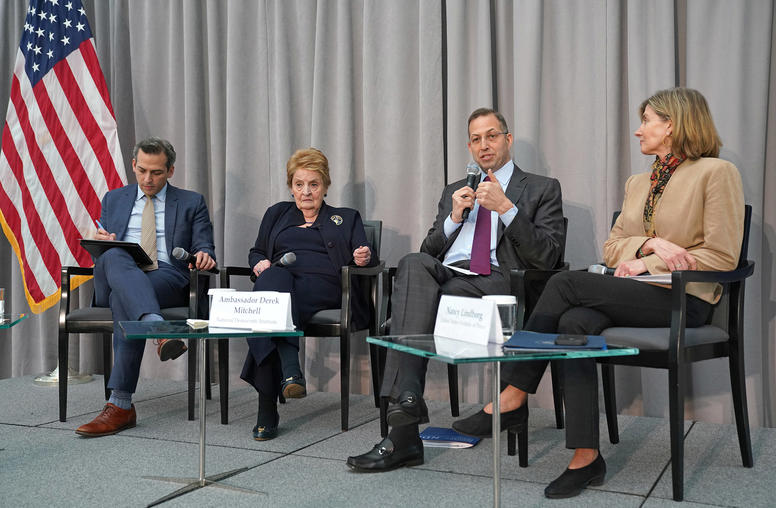
The Global Fragility Act: A New U.S. Approach
After several years of efforts by a bipartisan group of members of Congress and outside groups, Congress last month took legislative aim at a threat behind many of the world’s most pressing problems: fragile states. On December 20, as part of an appropriations package, President Donald Trump signed into law the Global Fragility Act, marking a new—if largely unnoticed— U.S. approach to conflict-prone states that can be vectors of violent extremism, uncontrolled migration, and extreme poverty.
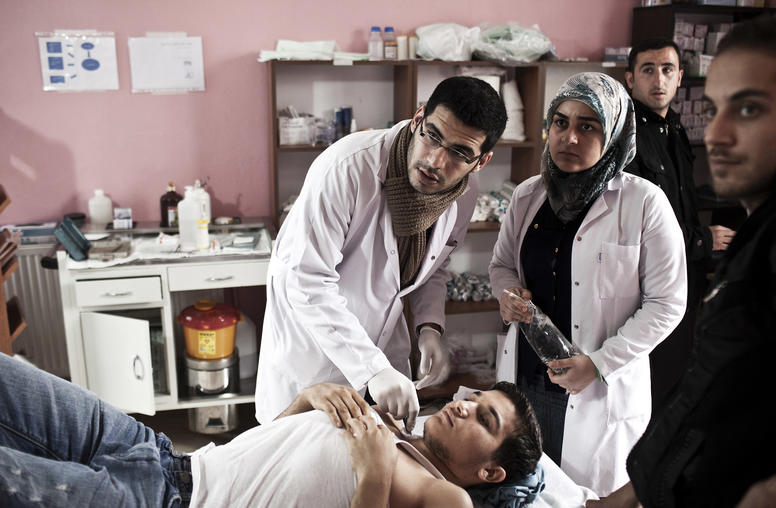
Where Public Health and Peacebuilding Converge
In many ways, peacebuilding and public health are kindred disciplines in that they both require whole-of-society approaches to succeed. But while both disciplines share similar traits, the relationship between peacebuilding and public health is often overlooked. In any country, public health services such as healthcare facilities, water sanitation, and accessible medicine are critical for citizens’ welfare. But in fragile or conflict-affected states, these services become even more important—serving as a foundation for healing and stability throughout a peace process. To examine this important dynamic, USIP’s Fouad Pervez and Chris Bosley look at three situations where the goals of peacebuilding and public health are intertwined.
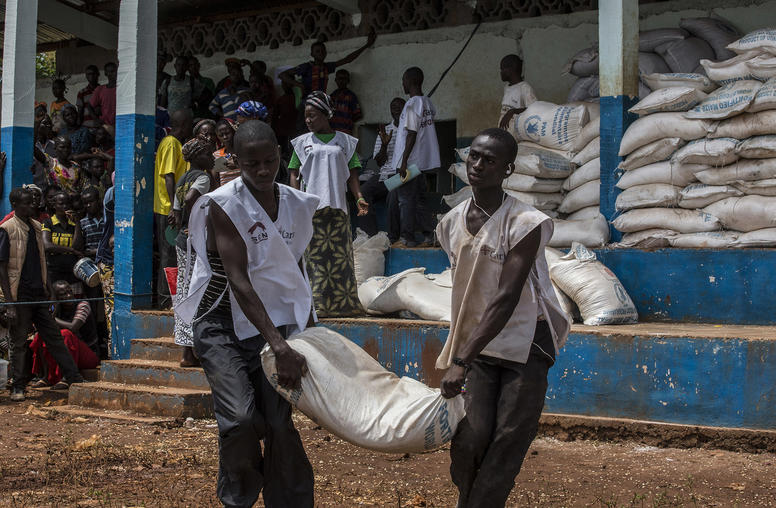
The Role of Aid and Development in the Fight Against Extremism
Extremist groups thrive in fragile states where basic needs go unmet. Development efforts can address the conditions that make people vulnerable to extremism. If you look at a map of where terrorist groups operate and where terrorist attacks occur, you will find that many coincide with locations of intractable conflict and deep development deficits. Low human development indicators, stark disparities in opportunity and access to resources, poor or scattered governance, and a history of conflict and social marginalization feature prominently among afflicted communities.
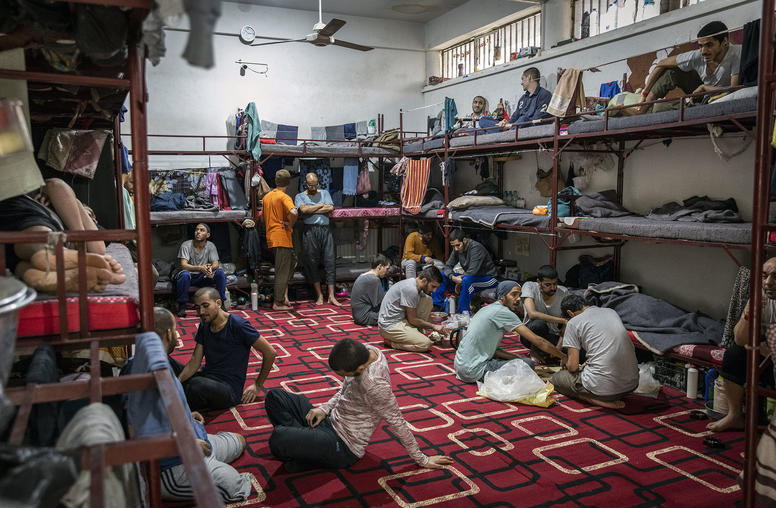
A Sustainable Approach for Disengaging Violent Extremists
Governments and communities worldwide are facing the increasingly daunting challenge of what to do when citizens who participated in violent extremist conflicts return home. With ISIS’s territorial caliphate extinguished, more than 100 countries could face the task of not only having to reintegrate their citizens, but also preparing their communities for a future with them living next door. This is a society-wide challenge that will engage a cross-cutting spectrum of stakeholders deploying a range of peacebuilding and other tools to build communities and individuals who are more resilient to violent extremism.
Pakistan School Attack Sparks New Form of Public Action
In the aftermath of the horrific Taliban attack on a school in Peshawar that left more than 140 people dead, most of them children, a national consensus against terrorism may be emerging in Pakistan. Also developing is a new style and approach for civil society activism.
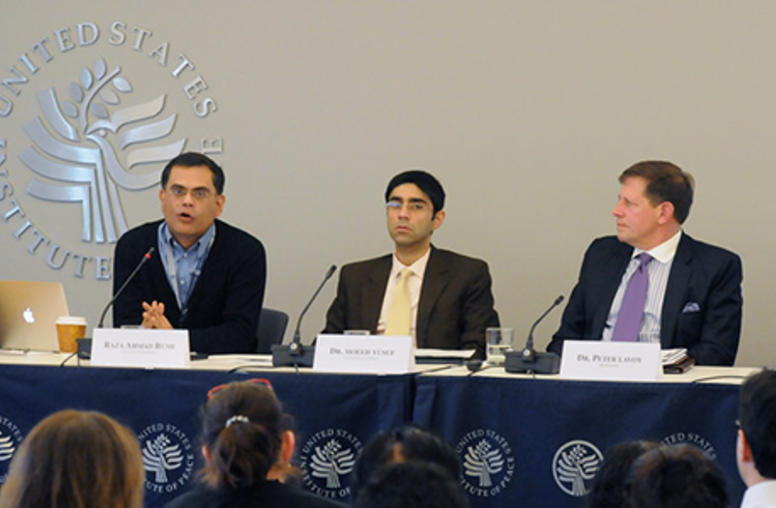
Pakistan Massacre of Schoolchildren: What Has It Changed?
Even having lost 50,000 people killed in terrorism-related violence over more than a decade, Pakistan was stunned by the Taliban massacre of 145 schoolchildren and others at an Army school in Peshawar on December 16, 2014. With some commentators calling the event “Pakistan’s September 11,” the U.S. Institute of Peace convened experts to assess whether the country may actually have reached a decision point that could yield a more consistent and effective state campaign against terrorism.
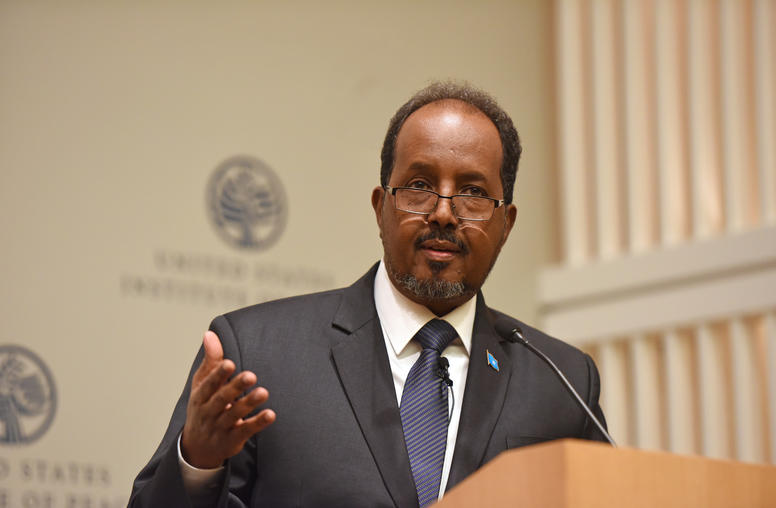
Somalia Seeks Best Possible Elections, More Security Aid
Four years after the formation of a federal government in Somalia, the country has built nascent institutions, but it will need years of financial and security support to make the new state effective, President Hassan Sheikh Mohamud said April 20 at USIP. The country’s next critical step will be to hold national elections before September, a vote that Mohamud said will be less democratic than he and other Somalis had hoped—but an improvement in a country that has not elected any government since 1969.
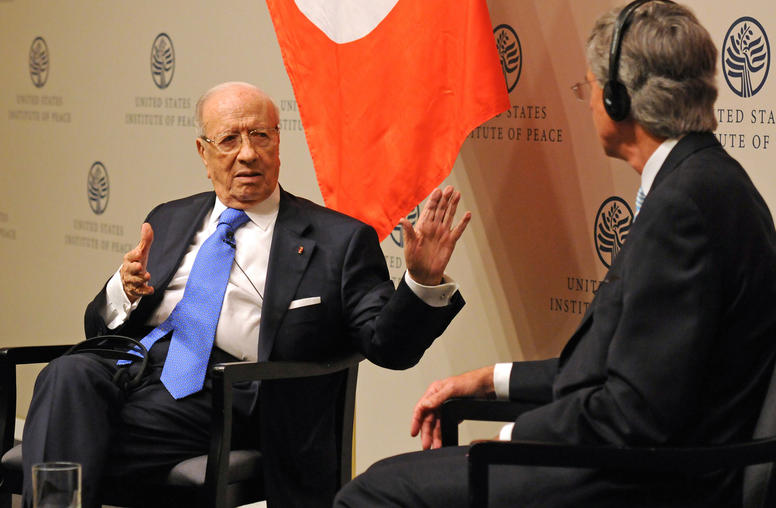
Violent Extremism: Muslim Democrats as Part of Solution
The White House account of President Donald Trump’s first phone call with Tunisian President Beji Caid Essebsi is a good sign that the U.S. might continue to work cooperatively with moderate Muslim political leaders who can contribute to global stability and aid in reducing violent extremism.
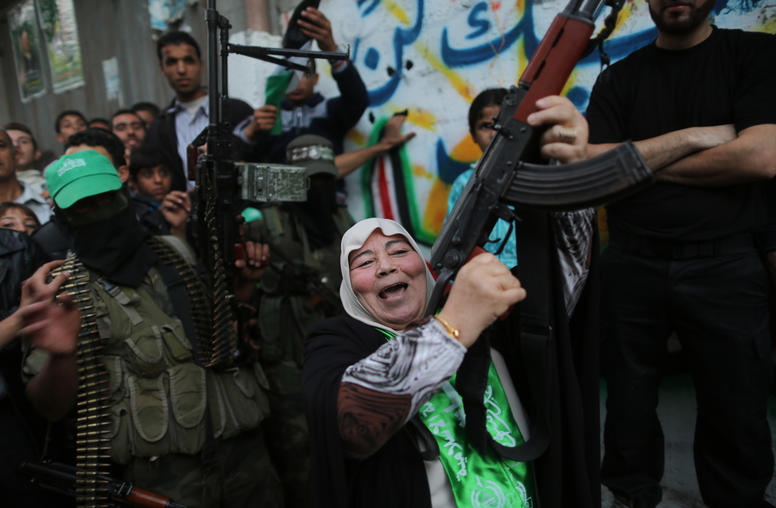
From Nazis to ISIS: Women’s Roles in Violence
From the Nazi regime of the 1940s through the Islamic State of today’s Middle East, an obscured element of history runs though the phenomenon of violent extremism: the participation of women. Contrary to the classic image of women as victims or, at least more recently, peacemakers, new research shows how women can stoke, support and sometimes directly join in violent action, scholars said in a discussion at the U.S. Institute of Peace.
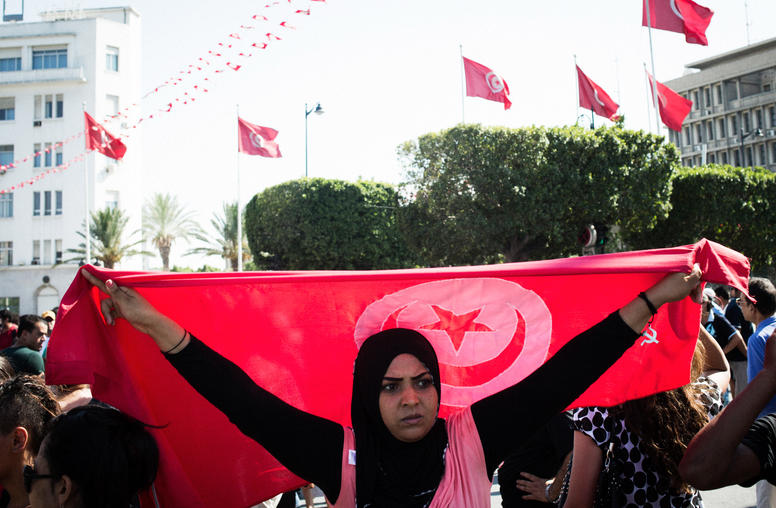
Aid Remains Key to a Counter-ISIS Plan, Tunisia Says
As the Trump administration prepares an international conference to shape strategy against ISIS, the plan should include economic aid to undercut extremist recruitment, Tunisia’s foreign minister said March 14. Financial help is essential to help nations at risk, such as Tunisia, offer jobs and futures for unemployed, disillusioned youth, Foreign Minister Khemaies Jhinaoui told an audience at USIP.